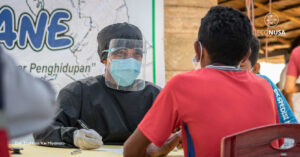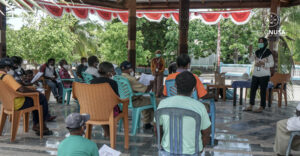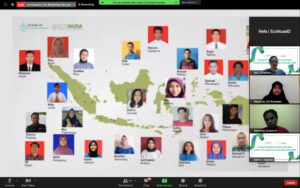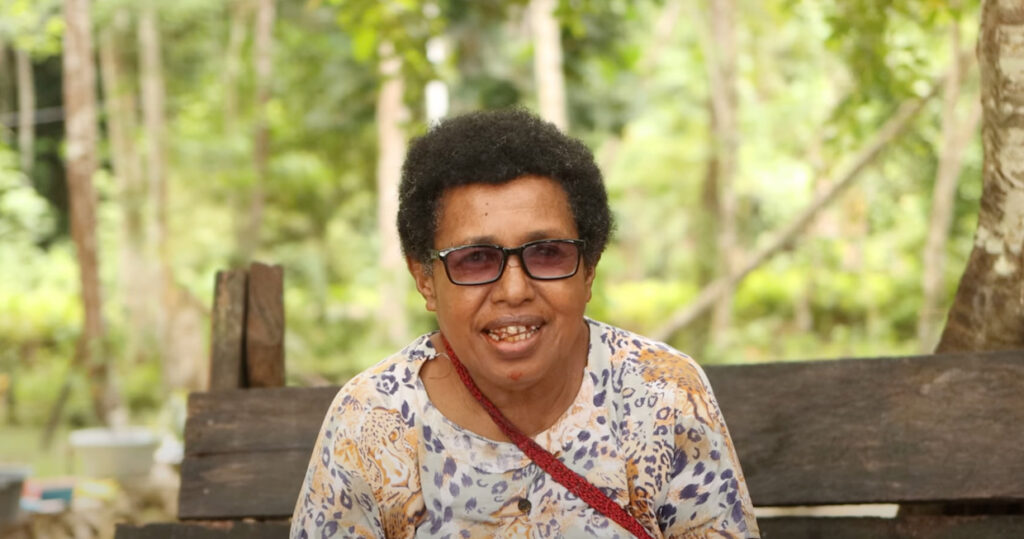
Mama Margarita Morin. (EcoNusa Foundation/Basthen Mandowen)
Nestled among the clear blue waters and majestic karst islands of Raja Ampat stands a modest guesthouse known as Yenkankanes Homestay. Located in Saporkren Village, South Waigeo District, the homestay bears witness to the profound transformation of its owner—from an illegal logger to a dedicated steward of the surrounding forest and sea.
It was Mama Magareta Morin and her husband who established the homestay in 2013. Before this venture, her husband worked as a chainsaw operator, referred to locally as a tukang senso, a term derived from the English word “chainsaw.” These workers often illegally felled trees using chainsaws, contributing to the degradation of the forest. “My husband used to be a logger—cutting down trees until the forest was almost gone,” Mama Morin recalled.
Read Also: An Elementary School Graduate Became a Homestay Owner in Raja Ampat
However, their lives took a different path when they began operating the homestay. They named it Yenkankanes, which means “crying sand” in the Biak language. The name is drawn from a local legend passed down through generations, conveying a message about nature’s sorrow when it is harmed and its hope to be healed through human care. “After we started the homestay, thank God, everything changed. My husband stopped cutting trees,” she said.
Mama Morin now runs the homestay with deep care. She warmly welcomes guests, prepares meals in a simple kitchen, and ensures a comfortable stay for visitors. Beyond hospitality, she and her family are actively engaged in protecting the surrounding forests and marine areas. Mama Morin firmly believes that a well-preserved environment brings long-term benefits to people. In Raja Ampat, where tourists flock to experience its natural beauty, maintaining the ecosystem is vital for sustaining both the land and livelihoods.
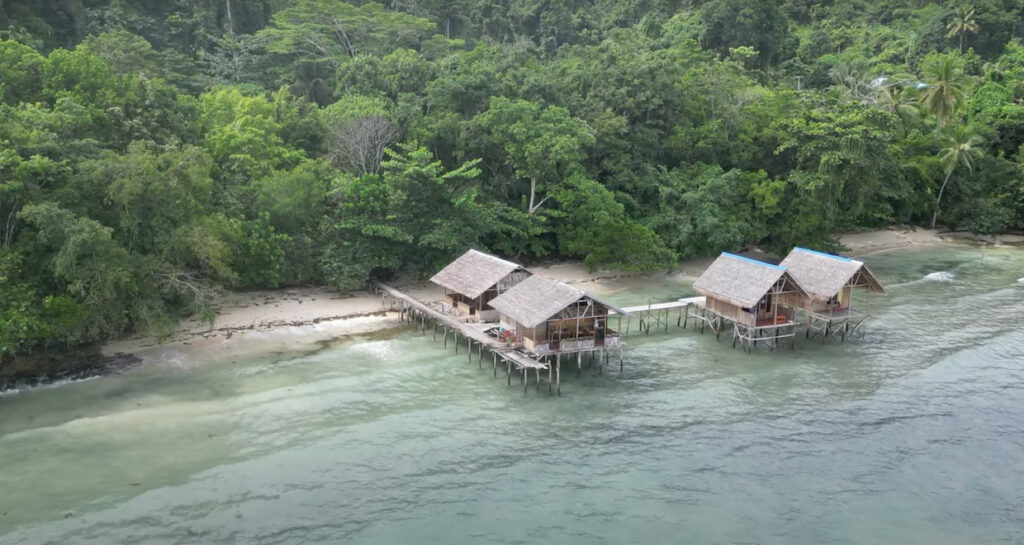
The COVID-19 pandemic brought tourism to a halt. No guests arrived, and the homestay fell into disrepair due to prolonged vacancy. As the tourism sector began recovering, Mama Morin found herself unable to capitalize on the rebound—her homestay was uninhabitable, and she lacked the capital for renovation.
In 2023, hope arrived through a revolving fund provided by EcoFund. With the support, Mama Morin and her family were able to renovate Yenkankanes Homestay. The business revived, and once again welcomed guests—not only as a place to stay but also as a window into the lives of indigenous Papuans living harmoniously with nature. “If we care for nature, it will reward us many times over,” she said.
Read Also: Homestay Rebuilding in East Arefi, An Economic Recovery Effort for Local Communities
Mama Morin now also uses the homestay as a platform to educate visitors about environmental preservation. When guests inquire about the best diving or snorkeling spots, she enthusiastically names several and proudly adds that these areas remain pristine because they are protected by local communities. A healthy natural environment, she emphasizes, is a product of collective responsibility.
The homestay also helps stimulate the local economy. Mama Morin prioritizes sourcing her supplies locally—buying fish from village fishermen and vegetables from local farmers. This not only supports surrounding livelihoods but also strengthens the spirit of community cooperation. “We’re not the only ones who benefit; the community does too,” she added.
Mama Morin’s journey exemplifies how a simple, value-driven enterprise can spark significant transformation. Yenkankanes Homestay stands as a testament that when communities are empowered and given access to sustainable economic solutions, they can become the strongest protectors of nature. Behind her warm smile, Mama Morin carries a powerful message: change begins at home, and a greener future is built through the courage to choose a different path.


